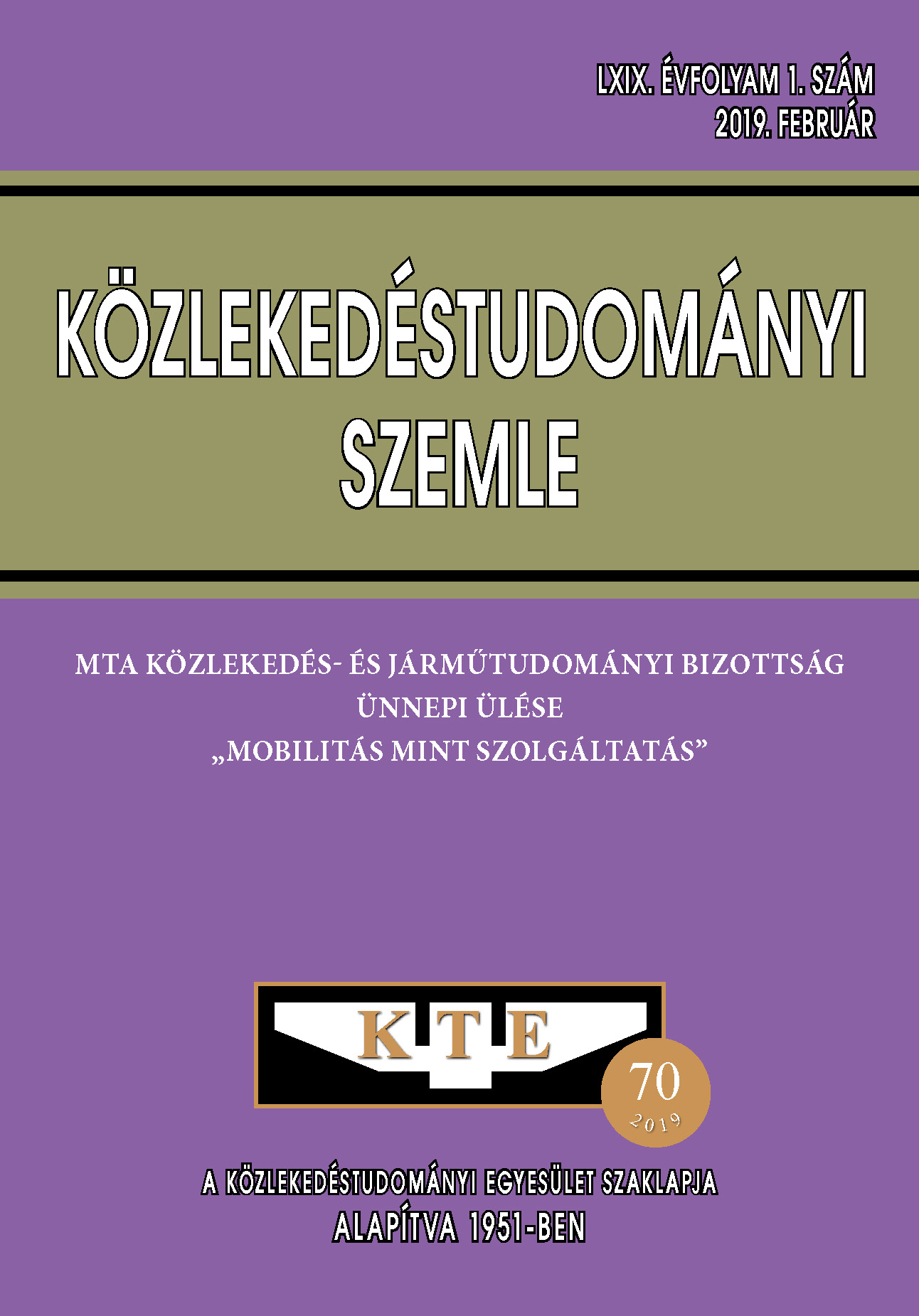Innovative passenger transportation systems and mobility services
Abstract
The technology development affects the interaction between the transport, economics, society and environment. The novel solutions in the field of vehicle and infocommunication technologies, and the sustainability requirements effect significant alteration that fundamentally influences the traveller behaviour. The presentation summarizes the definitions,
regularities, technologies, application fields and directions, and opportunities in developments related to the passenger transportation system, travel modes and processes. Since the passenger transportation system is transforming into a special more and more automated information system, the fundamental modelling methods of complex information systems, and the transport related applications of the models are described. Beside the interpretation and the comparison of the novel components of the mobility palette, the forecasting of potential upcoming solutions is also possible. The presentation is based on a purposeful and continuous scientific research.
References
Csiszár, Cs., Csonka, B., Földes, D. (2019) Innovative Passenger Transportation Systems könyv, Akadémiai Kiadó, Budapest, ISBN 978 963 059 941 2
Grotenhuis, J-W., Wiegmans, B. W., Rietveld, P. (2007) The desired quality of integrated multimodal travel information in public transport: customer needs for time and effort savings. Transport Policy. Vol.14. pp. 27–38. DOI: http://doi.org/d7tkz9
Földes, D., Csiszár, Cs. (2016) Conception of Future Integrated Smart Mobility. Smart Cities Symposium, 26-27 May, Prague, Czech Republic, pp. 29-35. DOI: http://doi.org/cxk2
Watkins, K. E., Ferris, B., Borning, A., Rutherford, G. S., Layton, D. (2011) Where is my bus? Impact of mobile real-time information on the perceived and actual wait time of transit riders, Transportation Research Part A: Policy and Practice. Vol. 45. No. 8. pp. 839–848. DOI: http://doi.org/fg4qvp
Dohmen, C. (2017) Evolution of passenger information in public transport to bidirectional communication gives access to new data sources. International Conference on Intelligent Transport Systems in Theory and Practice, mobil.TUM 2017, 4-5 July, Munich, Germany.
Articles published electronically are open access (OJS), freely available online and can be downloaded. Authors of articles are not charged any publication or publishing costs (APC). Users have the right to read, download, copy, print, and search the articles, or share the full text with a link.
Authors must declare that their submission has not been previously published in another journal, that financial support has been acknowledged, and that the list of references is complete and accurate, including specification of URLs and DOIs (if available). When submitting a draft article, each author approves the submitted version. Authors guarantee that the article is their original work. Authors are required to participate in the peer review process, follow the advice of reviewers, meet the prescribed deadlines, and, if any, withdraw the submission or correct errors.
All submitted articles are subject to peer review, where the editors request an independent evaluation from at least one expert, ensuring that the reviewer(s) have no conflicts of interest with the authors. The final decision is made by the Editor-in-Chief, who takes into account the evaluations and the suggestions of the editors. The editors and reviewers treat the submission confidentially.
The publisher and editors are committed to maintaining high ethical standards and to preventing publications that involve research misconduct. They follow the COPE guidelines on such ethical issues.
The authors retain copyright and grant the journal the right of first publication under the Creative Commons License (https://creativecommons.org/licenses/by-nc-nd/4.0), which allows others to share the work, while acknowledging the authorship of the work and the first publication in the journal.
The journal archives all published articles, and the journal's owner, the Hungarian Society of Transportation Sciences, will continue to operate the database even if the journal ceases to be published.















